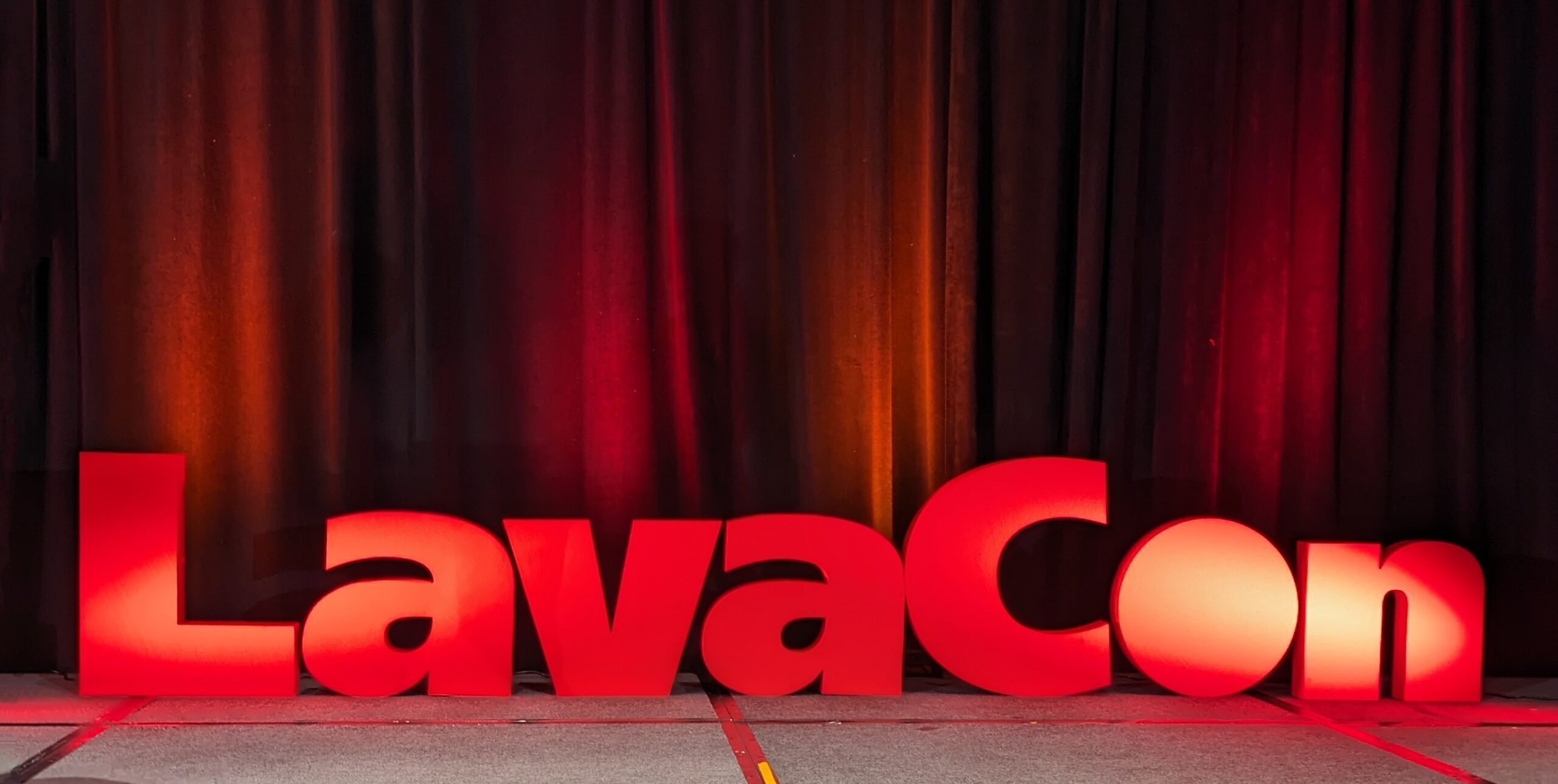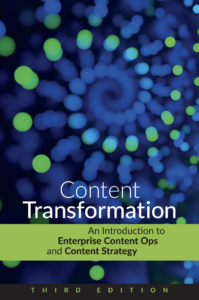Lessons from LavaCon 2023: How AI will impact the future of content
If you didn’t make it to LavaCon 2023 in-person or online, here are the lessons our team shared about the perils and possibilities of AI, the future of content, and more!
AI was the big topic of LavaCon 2023. Experts shared the predictions and benefits of integrating AI in content operations.
Peril and Possibilities: AI in Content Operations
During her keynote speaking session, Sarah O’Keefe didn’t shy away from the risks AI presents for content operations.
“AI is a classic disruptive innovation. It comes in at the bottom, it’s low-to-no cost, so it’s going to take over.”
— Sarah O’Keefe
For content that’s relatively low risk such as low-stakes marketing content, the problems presented by AI may not be particularly precarious. For high-stakes content or “content that matters” such as content with life-altering information, the impact of AI will be devastating if it’s left unchecked by human authors.
Risks include:
- Trust and reputation. Who is responsible when content goes wrong? What happens when your organization publishes AI-generated content that leads to injury or death?
- Copyright and intellectual property. When you take the work of one or more authors and publish it as your own, you know that’s plagiarism. When AI takes and repackages the work of hundreds of authors, at what point is it no longer plagiarism?
- Sophisticated scams. Synthetic video, audio, and imagery make scams and “deep fakes” harder and harder to detect, which has drastic legal, political, and safety consequences.
- Bias. AI finds patterns that should not be replicated. Additionally, discriminatory content will be reiterated and fed back into the content pool AI draws from.
“Will AI take our jobs?”
Sarah’s answer? “Not for anyone in this room.” Technical writers, information architects, and other roles built around structured authoring will not be replaced by AI because the intelligence and strategy they add to the content is critical.
For copywriters, however, these roles will be significantly altered or eliminated because of AI.
“Our best guess is that AI will displace low-value content producers, such as content farms that write fake product reviews, SEO-optimized clickbait, and the like.”
— Sarah O’Keefe
So, how do we use AI safely?
AI isn’t going away, and there are circumstances where it can help content creators be more efficient without compromising the integrity or quality of their content. Sarah recommends the following use-cases for AI:
- Automate repetitive tasks. If you need to generate a short description from a list of inputs, let a large language model start a draft for you.
- Generate ideas. Breaking writer’s block by generating lists or drafting ideas will help you move faster to generate content than wasting time staring at a blank page.
- Apply & verify known content patterns. AI recognizes patterns much faster than humans ever will. Leverage these pattern-matching abilities to find critical insights from your content in a fraction of the time.
- Synthesize known content. If your organization has a private large language model that’s been trained with your content, use it to summarize your content as needed.
For an in-depth perspective on the risks and recommendations for AI, check out the white paper that Sarah authored, AI in the content lifecycle.
Closing panel discussion: The Future of Content
Seated left to right, Dipo Ajose-Coker, Sarah O’Keefe, Scott Abel, Rob Hanna, and Megan Gilhooly.
This dynamic panel displayed perspectives from multiple content industry experts. AI was, of course, a large topic of discussion, but they also discussed a wide range of future-focused topics. Here are some of Sarah’s insights:
What will AI look like for content creators in coming years?
“It’s going to be like a spell checker. The idea of content creation without a spell checker is a ‘no thank you.’ Does it make mistakes? Occasionally, yes, but it’s a tool and you use it and you know to be careful not to allow it to auto spell check something it can’t do. The key thing about the tooling with AI and all these generative systems is that the cost of creating bad content is trending to 0. […] If what is going to be out there in the world is 98% junk which does appear to be the direction this is heading, then it’s going to be really critical to find the not junk.”
What will the work landscape look like with virtual reality devices?
“If I have a VR headset, I have unlimited screen real estate in front of me and I can lie on the couch and do whatever I want and not be bound to my desk.”
Traditional search engines vs. generative search
“The results are getting worse. There are sponsorships everywhere, and it’s objectively worse than it was a year ago. Everyone is running off to ChatGPT because it gives you the illusion of a really good result, and it feels great because it tells you in complete paragraphs all about something. […] People are using generative AI and specifically what amounts to a chat bot to ask questions and get results, but the problem is that the results aren’t that good. It just feels much better to feel as though you’re conversing with an entity rather than traditional search right now.
Therefore, we have to do a better job with our content because that content is what it’s looking at and feeding off of. The better the semantics are, the better job it will do.”
“Therefore, we have to do a better job with our content because that content is what it’s looking at and feeding off of. The better the semantics are, the better job it will do.”
— Sarah O’Keefe
Structured content prepares you for the future
Many speakers mentioned throughout the conference that companies who have invested in structured content will reap the most benefits out of AI.
Structured content is rich with semantic content that allows AI systems to easily and accurately recall relevant content for a given query. Whatever the future holds, structured content will be the key differentiating factor for successful content operations.
What else is on the horizon for 2024?
In our upcoming free webinar in November, the Scriptorium principals discuss more content operations trends and predictions in the session, ContentOps 2024: Boom or Bust?




